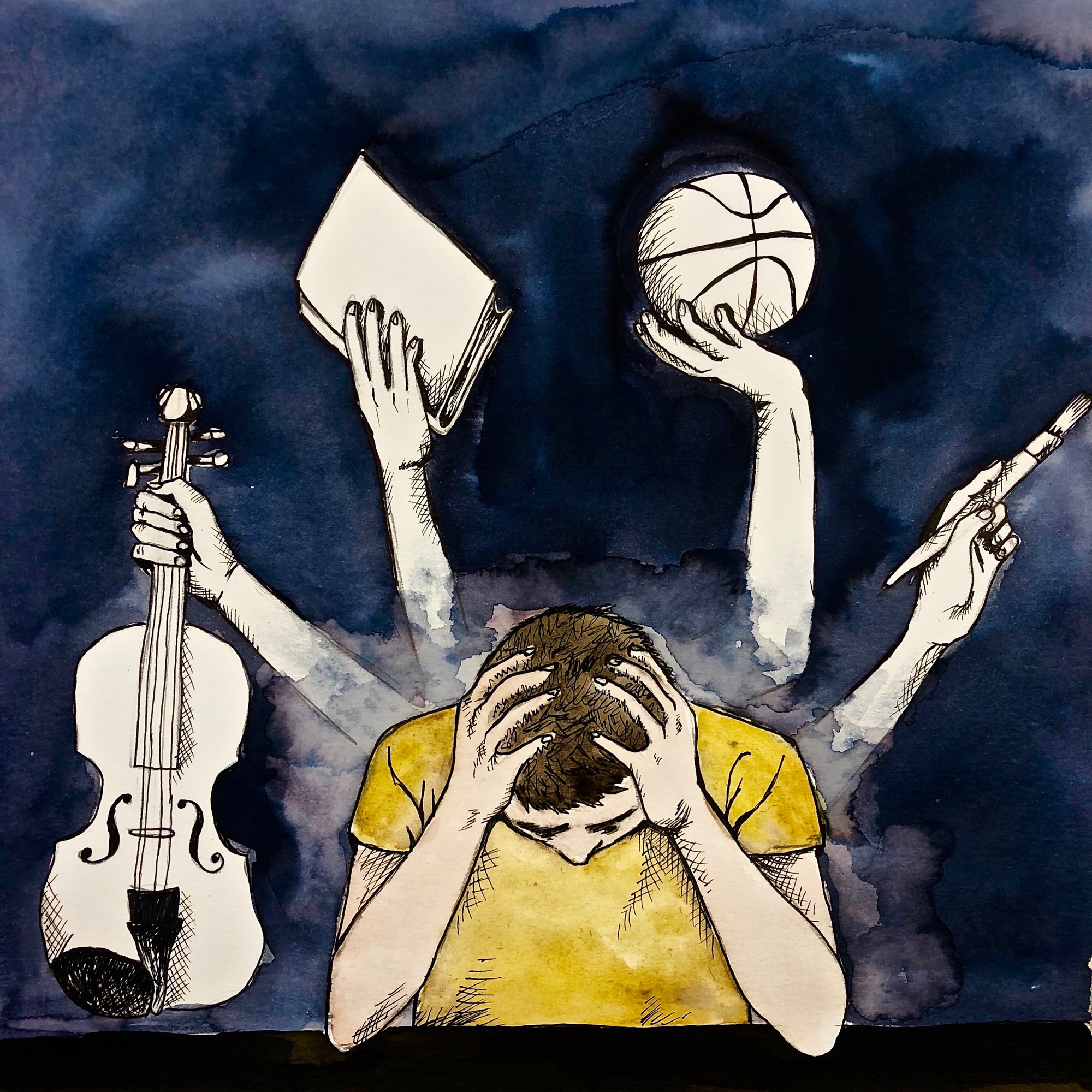Application-building approach to college admissions not viable for higher education

(Hanna Rashidi/Daily Bruin)
By Selby Kia
Nov. 26, 2018 11:33 p.m.
This winter, prospective college students will spend their hard-earned break agonizing over the Common Application, digesting turkey while continuously modifying essays and questioning every step of the process that will determine their admissions future.
The college admissions process just isn’t what it used to be. Colleges are growing more selective every year, and the test scores and rankings of students in the applicant pool are rising.
UCLA alone had 113,815 applicants in 2018, and admitted 14 percent of them – a 4 percent drop from the 18 percent admission rate in 2016. UCLA has rarely experienced such dramatic shifts in its admit rate.
The admissions process is out-of-touch, and the current method of vetting for the “best and the brightest” is not only stressful for students, but also unsustainable and counterintuitive to the goals of higher education.
For starters, most colleges require students to take a bare minimum of one standardized test, either the ACT or the SAT. This is the benchmark colleges use to judge students across high schools and predict their college success. But research on the accuracy of the SAT as a predictor is shaky, and college performance can deviate by as much as 30 percentage points from projected class rankings. And while a high score is necessary to be competitive, the elusive perfect score also doesn’t guarantee a spot.
Most students have to take Advanced Placement exams and SAT subject tests in addition to the ACT or the SAT in order to be competitive. They might end up shelling out thousands of dollars just to retake these tests, not to mention the need for prep books, expensive courses and tutors – an added pressure on students and parents.
Standardized test metrics hardly seem meaningful when students can simply learn how to take the test rather than show what they already know, which saturates applications and makes high scores a requirement rather than an achievement.
This process pushes out students who don’t think they can compete, or, based on the numbers, realistically can’t. Yet they might be just as good college candidates as their 4.0, resume-building counterparts who have proven that they can play the admissions game well, but not necessarily that they will be diligent, change-effecting college students.
Higher education’s requirements have simply gotten too high for some. And colleges should be worried about that.
Supposedly, the process is holistic. UCLA’s list of criteria doesn’t just include test scores and academic records but also personal qualities, community service and the applicants’ perceived ability to contribute to campus culture. But UCLA – or any other college – cannot realistically judge personal character from what’s on paper. Accurately assessing students holistically would require much more than just an activities list and a couple of essays.
Not only does the application give only a rough picture of the applicant, the lengthy and all-consuming process also detracts from the mission of higher education. UCLA defines its mission as serving society through both teaching and scholarship, educating generations of leaders and fostering commitment to social engagement. But if a student is forced to divide their focus between service projects and grades, they risk straining themselves or not doing well at either. And if they don’t manage it, the current process would likely kick them out of the running, contradicting higher education’s goal of social mobility.
Judging from the way college admissions are now, there is no way students or universities will be able to keep up at this rate. As schools become more selective, prospective students will be forced to apply to more schools while colleges continue to drive down admission rates in the interest of rankings.
This brings up the age-old problem of college applicants being forced to jump through hoops to craft the perfect application instead of pursuing intrinsic interests that are closer to their academic or career interests.
Tiffany Diep, a first-year business economics student, said she thinks this manufactured process is stressful for students.
“People always push you to get officer positions in clubs or do Girl Scouts,” Diep said. “If it doesn’t look good on the college app, then (students) won’t do it.”
And those who can’t resume-stack like their peers are boxed out, said Ozan Jaquette, an assistant professor of higher education in UCLA’s Graduate School of Education & Information Studies.
“There’s this harsh reality of this many people applying for this many spots, and if they stray too far from the norms of meritocracy, they won’t (get in),” Jaquette said.
Sure, the admissions process has always been difficult, but the process becomes arbitrary if students who belong in college are getting turned down.
The steady increase in test performance and GPAs shows that students are holding up their end of the bargain, but colleges aren’t holding up theirs. The promise of higher education is no longer upheld when admission becomes a numbers game, swept away by endowments and an obsession with rankings based on selectivity. The college admissions process, normalized by universities like UCLA, puts too much pressure on high school students who should spend their time actually preparing for college and their careers, rather than for their admissions decision.
This isn’t just an unfair process for capable students who simply don’t fit the mold. It also doesn’t adequately prepare students for what to expect from college, where there is no such thing as a Common App for life.


